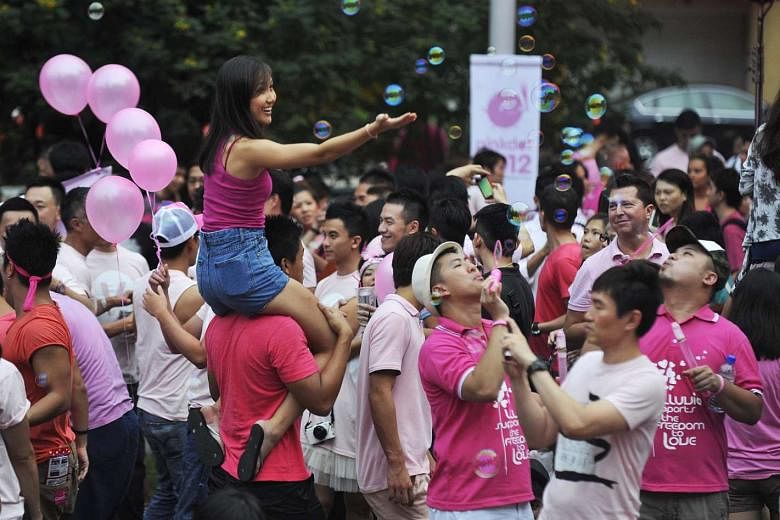SINGAPORE - Singapore takes a pragmatic and non-ideological approach to human rights, even as it is fully committed to protecting the human rights of Singaporeans.
This was laid out by the Singapore Government in its report to the United Nations as part of a routine review of the country's human rights record known as the Universal Periodic Review (UPR).
The UPR looks at the human rights records of all 193 UN member states every four years. During each review, a national report is submitted by the country under review, civil society organisations, and the UN's Office of the High Commissioner for Human Rights.
The Singapore Government explained its approach and progress on human rights in its 23-page report, released to the media on Friday (Dec 11), which covers a wide range of issues including social safety nets, the rights of persons with disabilities, migrant worker protection and civil and political rights.
Singapore's way of promoting human rights is to build a fair and inclusive society, by enhancing social protection and preserving social harmony.
"Human rights exist in specific cultural, social, economic and historical contexts. In every country, accommodation must be reached among the competing rights of the individuals who make up the nation and the interests of society as a whole," said the report.
Stability, security and social harmony are key prerequisites for economic growth, which enables the Government to care for and protect Singaporeans, it added.
"We therefore firmly apply the rule of law to ensure stability, equality and social justice, which are the necessary conditions for respecting the fundamental human rights enshrined in our Constitution and the Universal Declaration of Human Rights."
In an update of its progress since the last UPR, the report noted that Singapore had recently signed onto three international conventions: the International Convention on Elimination of All Forms of Racial Discrimination, the UN Trafficking In Persons Protocol, and the Convention on the Rights of Persons with Disabilities.
A new issue that emerged in this year's report was the rights of lesbian, gay, bisexual and transgender (LGBT) people. Singapore did not raise it in the previous report.
The Government reiterated its stance that it retains Section 377A of the Penal Code, which criminalises gay sex, but does not proactively enforce it.
This approach seeks to accommodate the sensitivities of different communities so all can exist harmoniously together, and takes into account the evolving social and cultural context of the country, said the report.
"All Singaporean citizens, regardless of their sexual orientation, are free to lead their lives and pursue their activities in their private space without fear of violence or personal insecurity," it said, adding that members of the LGBT community were not discriminated against in schools or at work.
Singapore did not accept a recommendation from the previous round to abolish the mandatory death penalty.
It noted, however, that in 2012 it removed the mandatory death penalty for categories of homicide where there is no intention to kill. The courts also have discretion to order either life imprisionment or capital punishment.
As part of the UPR process, a three-hour dialogue between Singapore and other UN members will be held on January 27 in Geneva, Switzerland. Its delegation will be led by Ambassador-at-Large Chan Heng Chee and include representatives from several ministries.
Said Dr Chan: "The realisation of human rights is a work-in-progress for all states. Singapore will continue to review and adapt our approach based on the changing atitudes and needs of our society."


